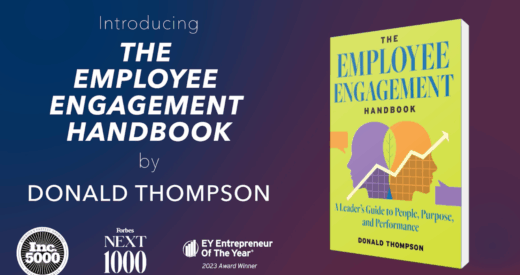Any sports fan or musician will tell you that cohesive teams can accomplish more together than they can ever hope to as talented individuals. But as anyone who follows politics can attest, it’s also really difficult to get a group of people to work toward the same goal.
The glue that holds great teams together is leadership – and not just any sort of leadership – inclusive leadership. Whether you’re trying to win a championship, perform a concert, or drive profits, you’ll only succeed if you invest in leaders who can assemble great teams. The key to inclusive leadership is building a culture where teams uncover how each person contributes to the whole, including knowing their strengths and weaknesses, and appreciating their unique contributions.
Inclusive leadership capabilities naturally align with diversity, equity, and inclusion (DEI) best practices, which enable leaders to tap into diverse viewpoints and amplify the talents of a diverse workforce. By respecting each individual’s identity and perspective, inclusive leaders build environments where every team member feels a meaningful sense of belonging and value to the collective mission. The result? Stronger, more cohesive teams that consistently exceed expectations.
Collaboration and Teamwork in Action

Inclusive leaders assemble diverse teams so they can get an array of perspectives when it comes to problem-solving and brainstorming, which leads to faster decisions and better outcomes. Rather than relying on individual efforts, the most successful leaders understand the importance of cultivating high-performing teams through collaboration. True collaboration is only possible when feedback is actively sought, conflicting ideas are welcomed, and discussions flow in psychologically safe spaces.
But while coaches and conductors can be satisfied with outstanding performances from the teams they lead, highly effective business leaders know collaboration doesn’t stop with their own teams. Inclusive leaders also foster collaboration with their peers, across departments, with external partners, and beyond, as businesses and leaders are being asked to address wide-ranging societal challenges.
Josh Haymond, Managing Partner of Vaco Raleigh, is an inclusive leader who works across the company with his peers from other locations in order to share trends and how the company is performing in different markets. He also schedules regular sessions with his Raleigh leadership team to ensure that each has an opportunity to share their observations and discuss concerns in a safe space.
“That consistent feedback loop needs to happen; there needs to be scheduled time or else it doesn’t get done effectively. We’ve taken time off of the floor consistently, so we can spend time together as a leadership group, so that we can be on the same page. If one of us is in vehement opposition to what someone else thinks, that’s not going to result in a cohesive communication to our office,” Haymond says. “We want to make sure…the same message trickles down to everybody throughout the organization.”
In sports and business, great teamwork is essential. Everyone’s job matters because everyone’s job contributes to whether the team achieves the vision. It’s not just the superstar – the quarterback or the lead vocalist – who matters. Every person must be great at their job for the organization to reach its ultimate potential.
Why is collaboration important for inclusive leaders?

In today’s ever-changing global economy, executive leadership teams are increasingly focused on sustainable growth, which relies on “networked leadership teams [to] steer the organization,” according to a report on the future of leadership from McKinsey. However, a persistent challenge for executives is to create an environment where better teamwork is organic.
“The old hierarchical model of leadership is increasingly seen as an obstacle to meeting the complex demands facing today’s organizations,” the report states. “Companies seeking to thrive now still need leaders who are accountable for their individual roles — but leadership itself resides in the teams of leaders acting in service to the organization.”
At the executive level, collaborative leaders understand that a unified team is key to effective decision-making and upholding an organization’s core values. In many organizations, you’re likely to find a leadership team with a COO, CHRO, CFO and more. Each member of the C-suite has their own function, but it’s vital that they all come together to identify and articulate what they’re trying to accomplish as a team. Understanding that unified, single goal for all team members allows their actions to be more naturally coordinated, simply because they share the same vision.
Leaders who are uncomfortable with healthy tension might be tempted to avoid tough topics or impose their own ideas in order to “solve” the conflict. But these interventions stop teamwork in its tracks. Instead, by acting as a facilitator and asking questions, inclusive leaders can create an environment where teams can collaborate and solve things together. That way, they are better able to learn and understand that the things that separate them are not as important as the singular goal that the team is trying to achieve together.
6 Tips for Effective (and Inclusive) Collaboration throughout your Organization
Often leaders move into management roles because they are outstanding individual contributors, and many find it difficult to shift their focus from personal achievement to collective success. To build collaborative skills, it’s imperative for leaders to foster open and transparent communication, creating an environment where everyone feels safe to express their ideas and opinions. By harnessing the power of collaboration, inclusive leaders can cultivate high-performing teams at every level throughout sustainable organizations.
Here are more actionable tips for improving collaboration and building stronger teams:
- Include Your Team in Decision-Making: Whether they are your peers or direct reports, seek input from key stakeholders to consider their ideas, needs, and perspectives when setting goals and milestones. Involving team members in the decision-making process leads to more effective outcomes and fosters a greater sense of community. If you find this practice uncomfortable, start by collaborating on smaller, low-risk decisions, and then observe how it improves team dynamics and results.
- Embrace Diverse Perspectives: Encourage individuals to collaborate by recognizing the value of combining different knowledge and experiences to find innovative solutions. Highlight that diverse perspectives can lead to novel and effective solutions. Strive to anticipate questions, concerns, and fears that team members may have during the collaboration process. Create space and opportunities for questions, demonstrating your commitment to addressing these issues and maintaining an environment where team members can contribute fully. For example, give time for deep thinkers on your team to process their thoughts and provide their opinions.
- Give and Receive Effective Feedback: An inclusive leader uses feedback to identify the gap between behavior and success with the understanding that closing that space will lead to a stronger organization. It’s essential that leaders approach feedback with a mindset of “we are going to do what is collectively right for the organization.” Evaluations must center on what we want to achieve together, how we’ll tackle the challenge, and how we’ll work to improve together. Key to effective feedback is also being receptive to suggestions yourself, whether the feedback comes from your supervisor, peers, or a team member.
- Model Vulnerability: The essence of a good collaborator is asking for help when you need it. The benefit here is that publicly seeking assistance encourages others to do the same. Admitting that you need help shows self-awareness and vulnerability, which create the foundation for psychological safety and trust. By acknowledging another person’s strengths and their importance to team efficiency, you also build their confidence and generate additional trust.
- Foster Honest Communication and Healthy Conflict: For many leaders, communication can reveal challenges, particularly when operating across geographies or countries. The ideal environment for an inclusive leader is building an atmosphere of open and honest communication where team members feel safe expressing their thoughts and concerns without fear of judgment or repercussions. Encourage candid discussions where different viewpoints are heard and explored on the basis of their merits. Emphasize that passion is welcome, but personal attacks are not. By fostering this environment of psychological safety, you enable team members to freely share ideas and contribute fully to collaborative efforts, ultimately leading to more effective and innovative outcomes.
- Give People Alternate Ways to Collaborate: Inclusive leaders understand that “collaboration” means different things to each person. Some people might initially be reluctant to give their opinions in a group setting, so it’s important to give people different forums to collaborate. Establish procedures for your entire team to share their opinions, such as calling on each person at the end of a meeting. Leaders might also find it helpful to ask each team member for feedback individually or request written responses. And remember, not every decision requires a meeting. Your team can also collaborate via email or instant messaging.
Collaboration is essential for organizations and inclusive leaders because it unlocks competitive advantage. By improving this key capability, senior executives cultivate diverse teams, which then bolsters the agile decision-making necessary in today’s ever-changing marketplace. By creating stronger collaboration, inclusive leaders build more successful teams, drive innovation, and lead their organizations to greater achievements.
Join the ranks of forward-thinking organizations that are harnessing the power of inclusive leadership to build stronger executive and managerial teams. Contact us today to learn how TDM LeaderView can transform your team and allow your organization to thrive.
Donald Thompson, EY Entrepreneur Of The Year 2023 Southeast Award winner, is a globally respected business leader, CEO of The Diversity Movement, CDE, and author of Underestimated.




